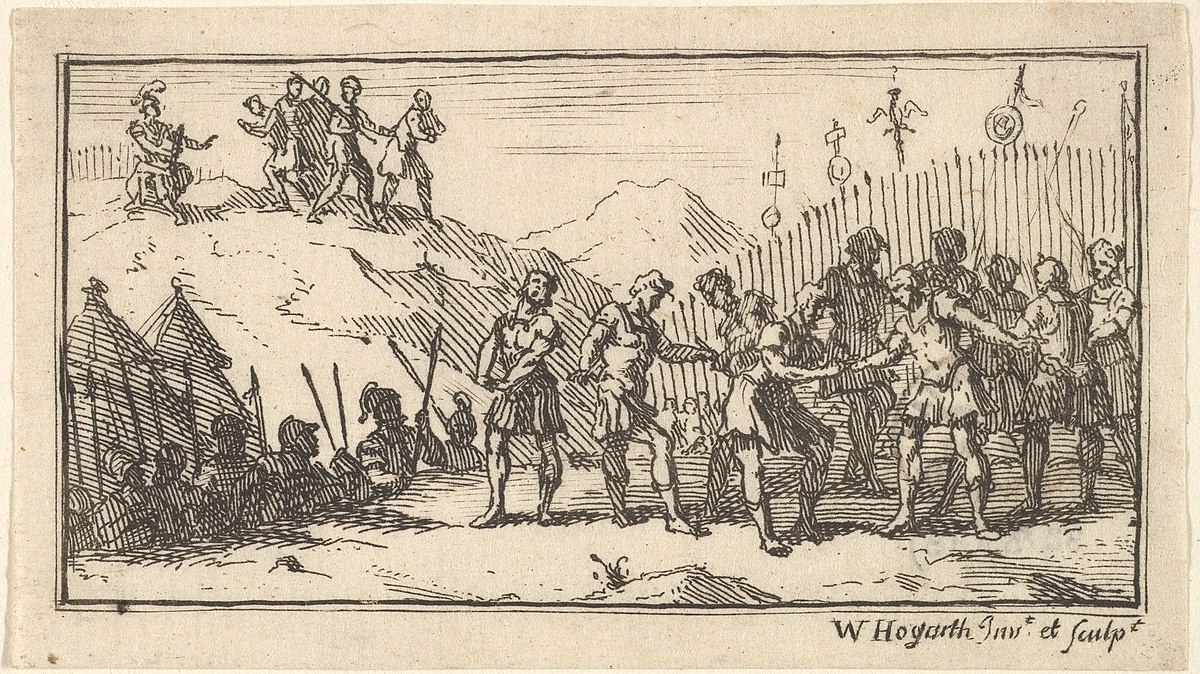Damn autocorrect.I think he wants them back, not in Switzerland.
Amend it, I will
Damn autocorrect.I think he wants them back, not in Switzerland.
i always thought it was one tenth left as in down 90% oh well either way not goodSounds good to me.
Great new chapter.
I have one little nitpick - You say the German high command is worried about the panzer divisions being “decimated”. That word literally means to be reduced by one-tenth. I think given what has already occurred they’d be worried about the panzer divisions they have left being “destroyed”.
And the bank vaults are very capacious, and very secure.I hear Switzerland is very nice in May...
The original was a punishment for failure or disgrace on the battlefield.i always thought it was one tenth left as in down 90% oh well either way not good
Guderian might need to seek asylum there if another German attack goes awry.I hear Switzerland is very nice in May...
At the moment, they might have left panic mode, but they are still in fire-fighting modeA thought (loving this story btw), now the French are able to start planning instead of constantly having to react, won't this mean that they'll be able to break out their Methodical Battle doctrine, especially if they can bring the artillery forwards that was needed for such a thing?
Modern usage of the term doesn't come close to doing justice to the shear horror of a classical decimation punishment. It's not just that 1 in 10 are brutally executed but that the other 90% have to carry it out and then live with the fact that they killed their closest friends, brothers in arms and often actual brothers.The original was a punishment for failure or disgrace on the battlefield.
The legionaries would draw lots, and 1 in 10 would draw a bad one, and be killed by the others.
Meanings change - hasn't been used as a punishment for a while, and doesn't mean 10% any more.
They have their reserves, Pretelat's additional divisions and the Alpine troops along with the new colonial divisions. After Case Yellow when the 1st, 7th, 9th Armies along with the BEF and the Belgians were out of the picture, it was mostly the above units that fought in Case Red. By June 1st they were in place, even after the utter destruction and panic of OTL.Its already obvious that they need to dig in to free up some divisions for a mobile reserve. That's what saved them this time, but they need at least one more, plus the British one. Fortifying up on defensive lines allows troops to be put into these reserve formations.
A group of divisions and tanks does not make a trained counterattack reserve. It will take longer that a week or two until they are in a state the French are happy withThey have their reserves, Pretelat's additional divisions and the Alpine troops along with the new colonial divisions. After Case Yellow when the 1st, 7th, 9th Armies along with the BEF and the Belgians were out of the picture, it was mostly the above units that fought in Case Red. By June 1st they were in place, even after the utter destruction and panic of OTL.
Modern usage of the term doesn't come close to doing justice to the shear horror of a classical decimation punishment. It's not just that 1 in 10 are brutally executed but that the other 90% have to carry it out and then live with the fact that they killed their closest friends, brothers in arms and often actual brothers.
Is there any estimation, of how often this was used in Roman times? Brutal, but effective? Backlash seems probable, seems risky. A more British/American expression I would think they were afraid there division would be gutted.Often having to stone or club them to death so it was a long and messy job.
One would think that reducing your force by 10% isn't a wise thing to do.Is there any estimation, of how often this was used in Roman times? Brutal, but effective? Backlash seems probable, seems risky. A more British/American expression I would think they were afraid there division would be gutted.
Is there any estimation, of how often this was used in Roman times? Brutal, but effective? Backlash seems probable, seems risky. A more British/American expression I would think they were afraid there division would be gutted.

To many Generals in the past it was better to reduce your force by 10% than have 100% of your force mutiny or desert.One would think that reducing your force by 10% isn't a wise thing to do.
Thank you for that article, was very interesting, does seem to be very little used.
Of course, if the French actually realised the damage they did to the panzers, a rapid, pushed attack would have had much better results!
But they don't realise, and after the scare they are being cautious. Probably over-cautious, but that's how things usually work out.